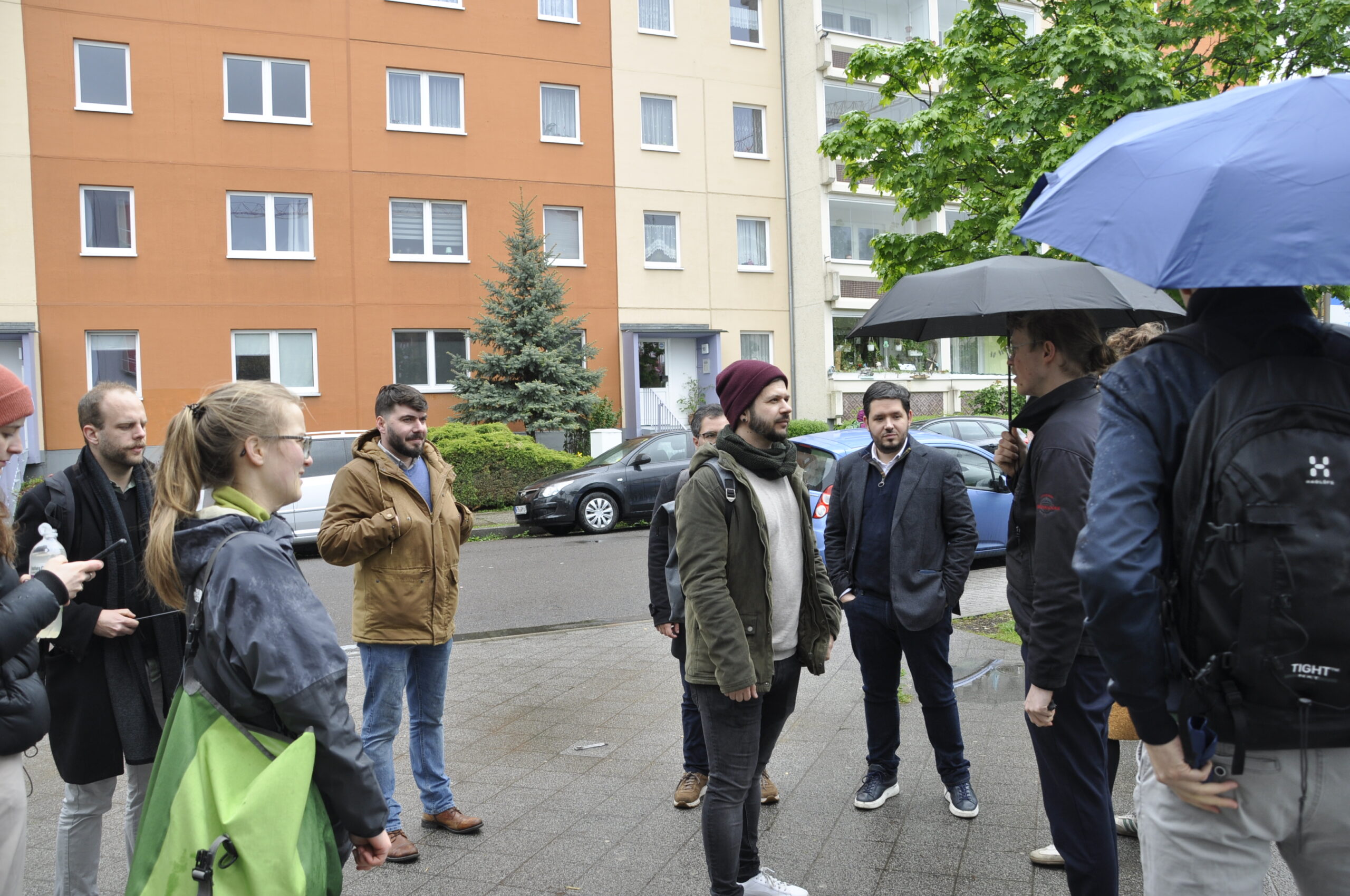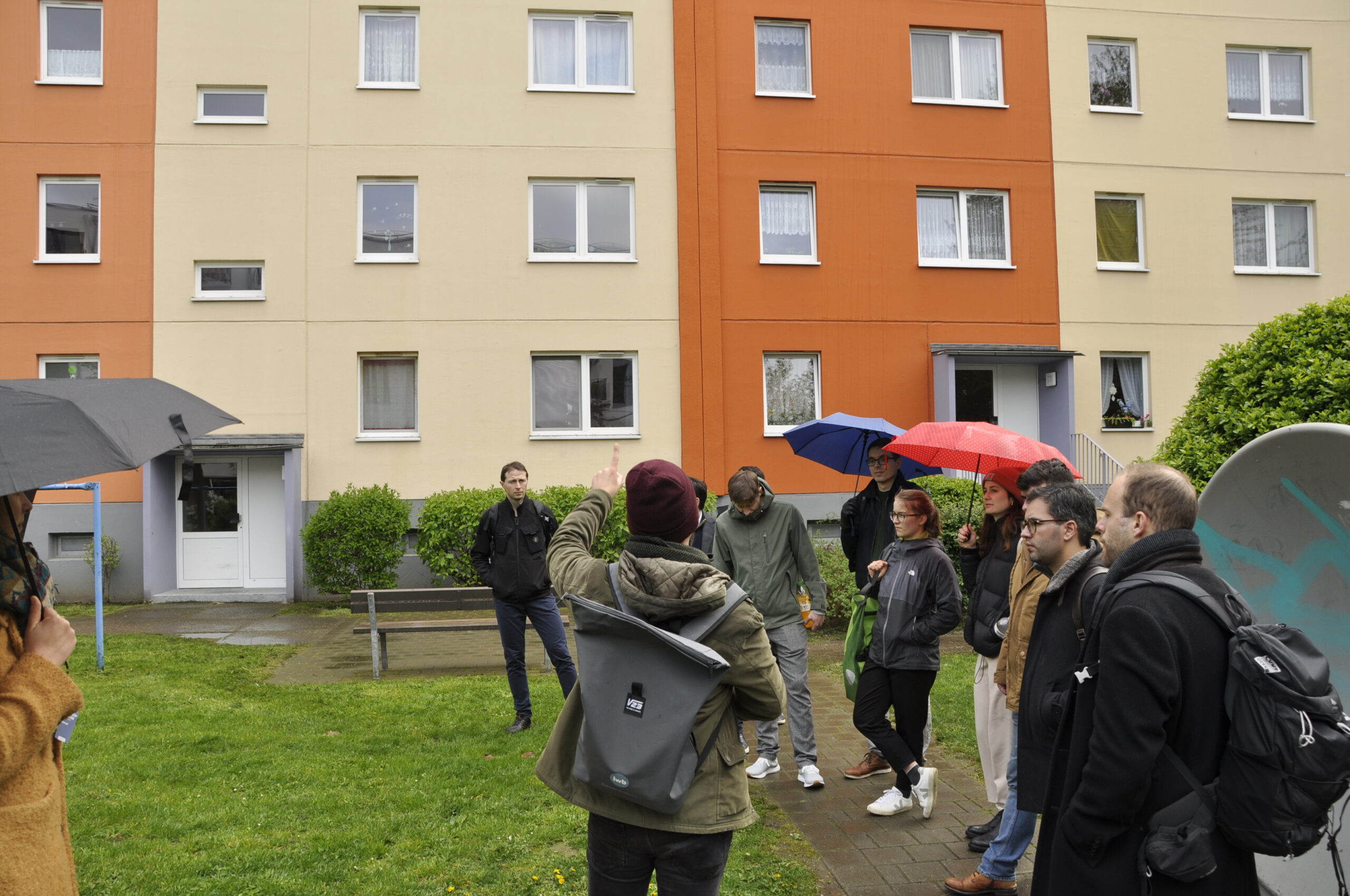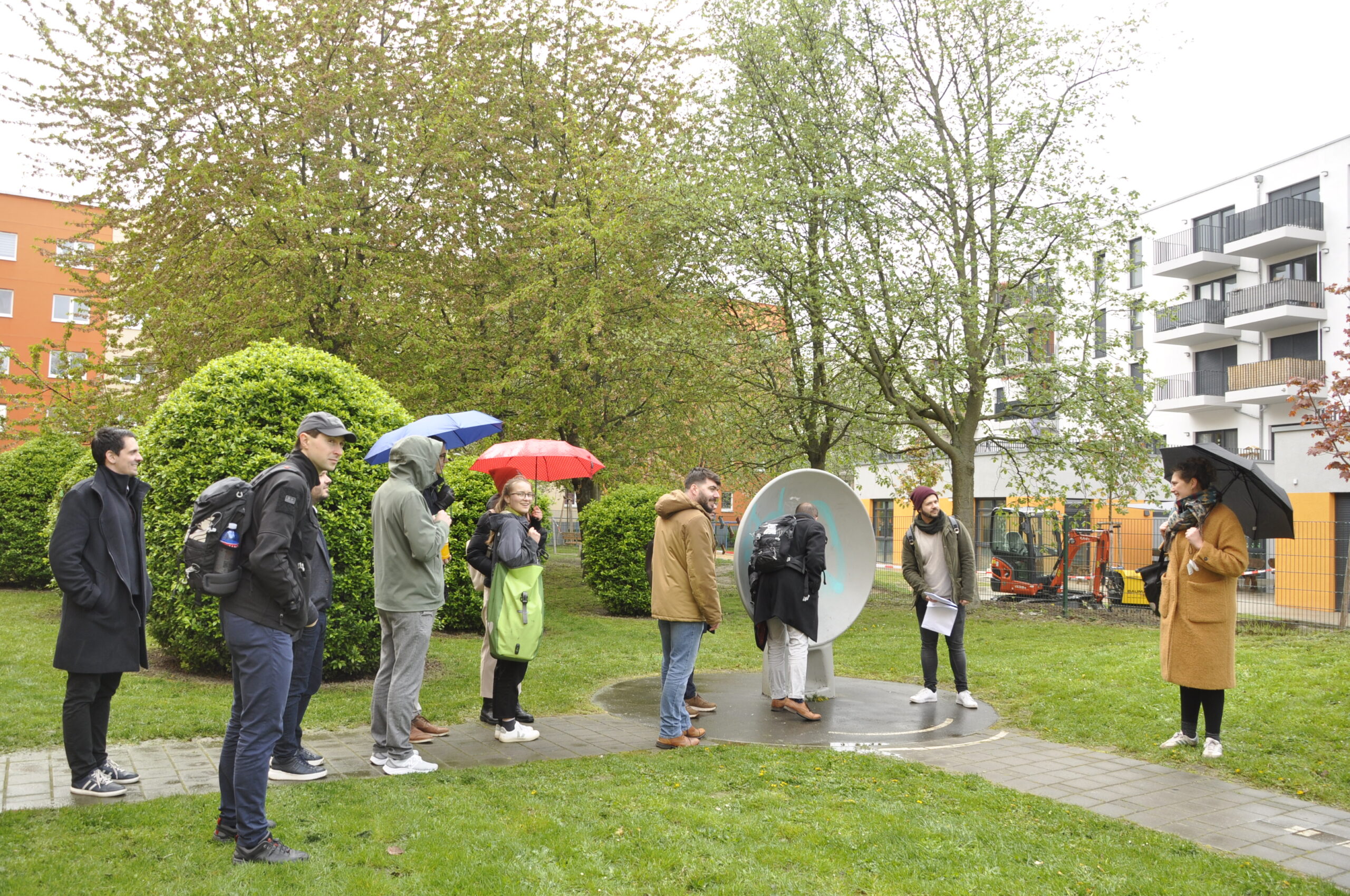Visit to the Kreuzstraßenviertel as part of Data Week Leipzig 2024
As part of the international workshop of Data Week Leipzig 2024, a cross-project meeting and professional exchange took place between the actors of the EU projects SPARCS and ASCEND. One highlight was a visit to the Kreuzstraßenviertel, a local flagship project of the housing industry, where some of the ideas realized in SPARCS were developed.
The Kreuzstraßenviertel, which was renovated in five construction phases between 2011 and 2016, is located to the east of Leipzig’s city center and comprises around 1,000 apartments. It is a prime example of cost-efficient energy-efficient refurbishment and the birthplace of several ideas that were implemented in the SPARCS demonstration area in the west of Leipzig.
The main aim of the refurbishment in the Kreuzstraßenviertel was to improve the energy efficiency of the WBS70-type residential properties with minimal intervention in order to keep rents socially acceptable. Before the refurbishment began, the properties were analyzed in detail. Infrared cameras were used to identify heat losses, for example. As part of the refurbishment, gables, top and bottom floor ceilings were insulated across the board, heating and hot water pipes were insulated and windows were replaced. One particular challenge was to renovate the building while it was occupied, a task that had never before been accomplished on this scale in Leipzig.
The measures reduced heat consumption by an average of 20%, while rents only increased by around €0.60 per square meter. Since then, this success has served as a benchmark for refurbishments in occupied buildings and has been successfully replicated several times.
As early as 2011, ideas were developed in the Kreuzstraßenviertel that could be further developed as part of SPARCS. These include a tenant information system. In a pilot project, digital consumption data was transmitted in 30 apartments back then, still using permanently installed tablets and numerous cables. This idea was taken up in SPARCS and driven forward with app developments, now with wireless data transmission and visualization via app.
Another idea from the renovation project in the Kreuzstraßenviertel district that was taken up in SPARCS is the optimization of the heating systems using additional data. As early as 2011, attempts were made to optimize the control parameters of the heating system through data collection and analysis. These efforts were continued as part of SPARCS with new approaches and state-of-the-art technology.
Last but not least, PV systems with self-consumption were tested in the area back in 2011. This was also the case in SPARCS. The progress made in this area is reflected in the current SPARCS study, which looks at applications and business models for decentralized photovoltaic systems from the perspective of the housing industry for local energy generation.




